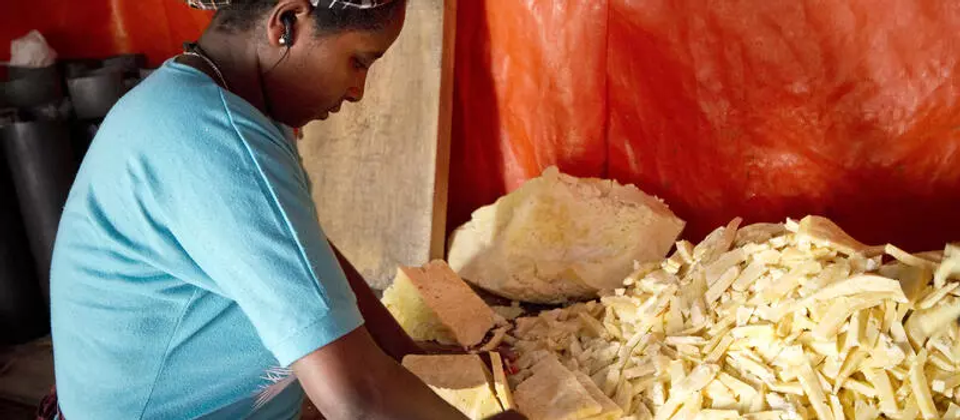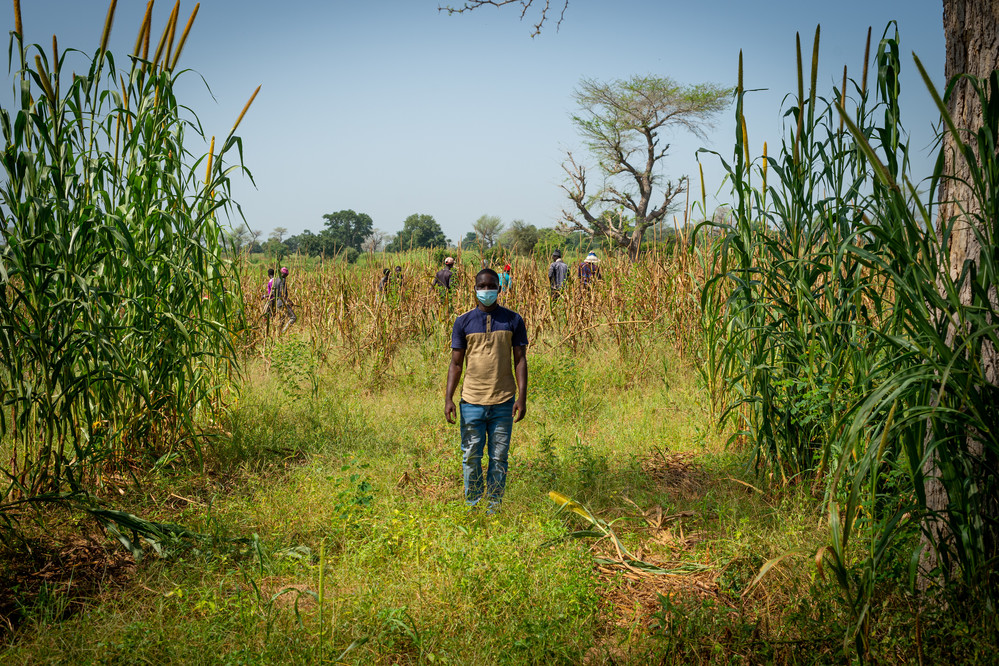
Photo: Kelley Lynch / Agrilinks
How can USAID Missions advance women’s economic empowerment (WEE) through private sector engagement (PSE)? Although the role of WEE in advancing companies’ social corporate outreach goals has been well documented, there is a lack of practical examples that clearly demonstrate the value and economic returns of these efforts or guidance on advancing inclusion in a sustainable and scalable way. This blog post explores this question using insights from the Feed the Future Advancing Women’s Empowerment (AWE) Program’s ongoing learning series with USAID Missions in Latin America and the Caribbean.
Why Invest in Women?
The benefits of investing in women are clear. Organizations that engage women create cultures that produce higher productivity, retention, engagement, morale and innovation, making investment in women a business imperative. Empowering women as workers, suppliers and distributors in a targeted way allows firms to tap into a wider pool of talent and capacity, leading to a stronger workforce and more reliable networks and sales channels. The International Finance Corporation, in “The Business Case for Women’s Employment in Agribusiness,” concluded that ensuring equal access to employment for women and investing in improving women’s working conditions and job opportunities can lead to improved workforce and organizational outcomes that directly impact the bottom line ― a win-win for women and private sector companies. The report observes that gender-balanced management leads to improved corporate performance and increased efficiency, competitiveness and innovation in agribusiness markets.
Promoting inclusion in PSE can result in engaging different market segments, leveraging different types of leadership styles and role models and expanding views on labor force participation.
Kristin O’Planick, market systems team lead, USAID
Strengthening Missions’ Work with the Private Sector to Advance Women’s Empowerment
While investing in women can clearly advance private sector interests, it’s not clear how this is being done in many of the markets where USAID works and what approaches are most effective. AWE is advancing the conversation about the intersection of WEE and PSE by capturing, translating and disseminating evidence of practices promoting improved agriculture systems outcomes and women’s empowerment. One of the ways AWE is doing this is through its Learning Seminar Series, “Increasing Women’s Empowerment in Agriculture and Market Systems through Co-Creation and Private Sector Engagement.”
In recent years, AWE has observed increased investment (totalling more than half a billion U.S. dollars) in approaches for inclusion of youth and women in agriculture and supporting markets. In 2020 and 2021, AWE interviewed USAID Bureau for Resilience and Food Security (RFS) staff and USAID staff in nine Missions to understand the challenges USAID Missions were experiencing in advancing women’s empowerment within economic growth programming. After hearing from Missions, AWE worked with them to codesign a series of trainings where Missions could share their experiences with regional colleagues on working with the private sector in making the case for the inclusion of youth and women.
Practical Lessons on Working with the Private Sector to Advance Women’s Empowerment
Some of the key takeaways Missions shared on working with the private sector to invest in WEE were:
-
Show how gender is essential to good business. USAID/Colombia used existing evidence to make the business case to the private sector and ensure proposed activities align with business goals.
-
Leverage where there is already interest and opportunity. USAID/Guatemala partnered with anchor firms to increase women’s inclusion in the market for demand-driven products. Consider using inclusive end market analysis.
-
Promote broad engagement in gender analysis and gender action plans. USAID/Guatemala used participatory stakeholder exercises to identify how the private sector could provide solutions to gender gaps.
-
Create trusting, transparent and flexible partnerships through supporting firms to engage with other actors and in different types of activities. USAID/Colombia facilitated strong linkages between Microsoft and the community where it would be working through site visits and meetings with women in the community.
-
Design more inclusive private sector strategies using inclusive market research.
-
Integrate inclusive market research principles into data collection. Pre-and post-solicitation, USAID/Honduras worked with the Transforming Market Systems (TMS) Activity to use a diverse and inclusive set of analysis tools ― including end market, market systems, network, legal and gender and social inclusion.
-
Identify stakeholders with the potential and willingness to act as agents of change through social behavior diagnostic tools.
You can read more about the learning outcomes from Seminar 1 here and from Seminar 2 here.
AWE also drew on best practices and evidence from the broader industry, including the Aspen Network of Development Entrepreneurs (ANDE), FinEquity, the Feed the Future Market Systems and Partnerships Activity and others who are contributing to the evidence base to advance inclusion efforts through PSE. A recent blog series on Making Markets More Inclusive highlights tools and tactics that can be used during cocreation between USAID and businesses to strengthen businesses’ bottom line and advance women’s empowerment goals.
The Way Forward
We have only scratched the surface on investing in women through PSE and are excited to contribute to the conversation by continuing to generate practical examples and tools. Be on the lookout for insights from the final seminar of the first learning series, which will be shared in the May edition of the AWE newsletter. AWE will be transitioning its learning seminar series to East Africa in Spring 2022.
This article was originally published by Agrilinks.

